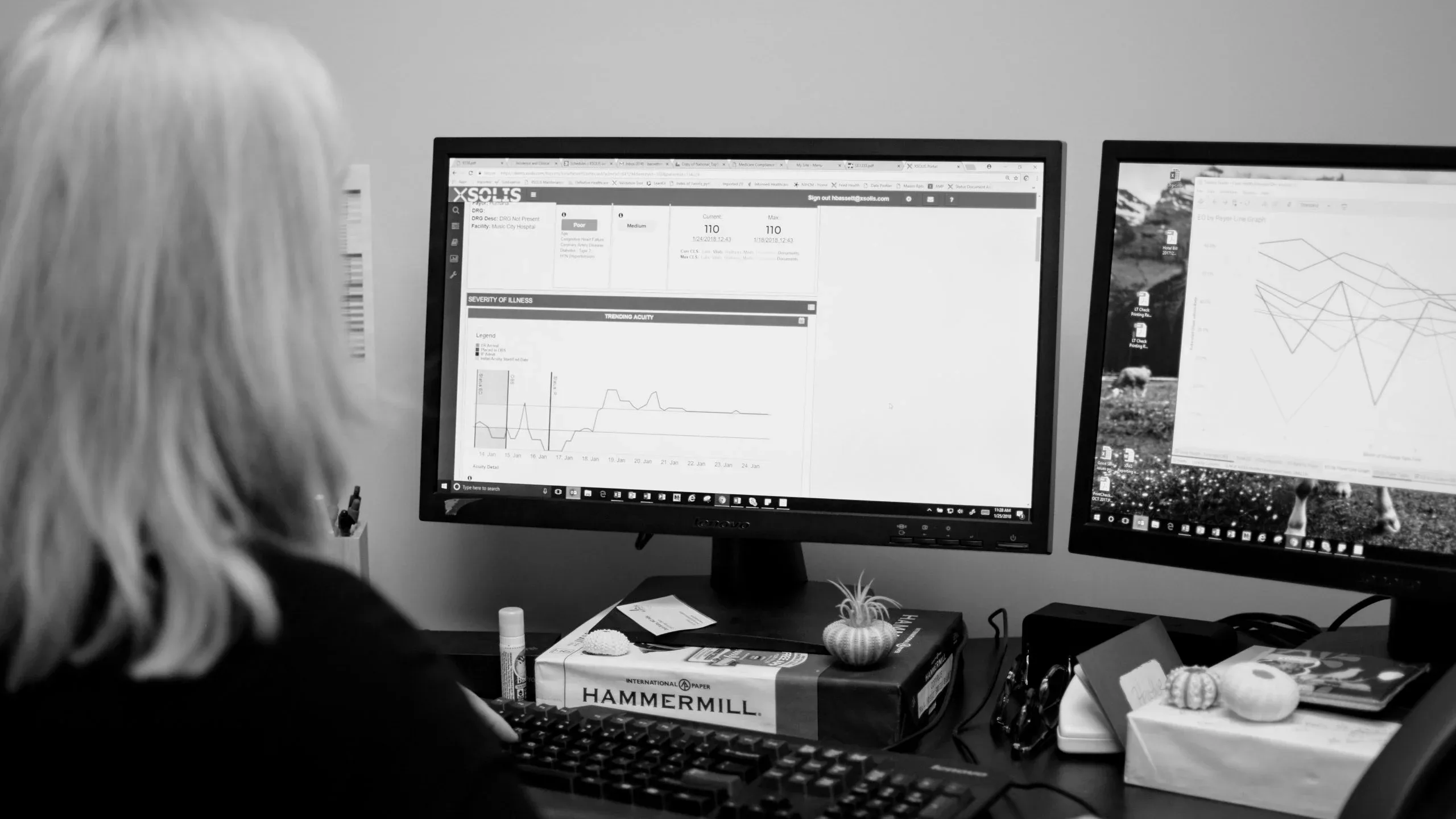The doctor-patient relationship should be modeled on trust, experience, and…data?
Heather Bassett, MD, Chief Medical Officer of Xsolis, shares how clinicians can provide better care by overcoming information silos.
Q: How does a physician currently work with data in a clinical setting, and why should they approach data differently?
A: When a physician assesses a patient, the first thing they do is try to evaluate their relative baseline health, layer on the presenting symptoms and then assimilate available test results. Currently, this process is cumbersome: log into the EMR, search for multiple data points – ranging from past medical history, labs, vital, radiology reports and many more –, and contextualize this information in light of a patient’s present condition, a process that relies on the specialized knowledge and breadth of experience the clinician has accumulated over their career. However, multiple systems and disparate data points make this process incredibly inefficient, tying up clinical knowledge with the mundane task of information gathering, rather than treatment. If a clinician has the pertinent patient data, presented in a meaningful way, the process is far more effective and efficient, creating a better and more productive care experience for the patient.
Q: What did you see as an opportunity to change this relationship with data?
A: Technology, specifically cognitive computing, has become advanced enough to help change clinicians’ relationship with data. Cognitive computing is designed to mimic the way the human brain works using machine learning and predictive analytics, more easily assimilating large bodies of data into an actionable format. This can automate some of the menial and time-consuming tasks that hospital staff do today that distract from meaningful application of their clinical skills. For instance, Xsolis’ proprietary Care Level Score addresses the underlying question the physician asks when assessing a patient: how sick is my patient? This Care Level Score considers factors and input from disparate sources – labs, vitals, as well as medications, documentation, and past medical history – to produce an immediate, contextual understanding of each patient, saving precious time in the process.
Xsolis uses similar algorithms to assess discharge readiness, level of care requirements, and medical necessity determinations – all of which a clinician now does through intuition but which can be expedited and expanded through analytics. Machine learning, the process by which algorithms become progressively better at predictions, also lends the context of thousands of similar cases and associated outcomes to the mix – far more easily and objectively than the human brain can. These analytics don’t replace clinical intuition, but rather augment it and ensure clinical decisions made by the physician are streamlined and backed by a breadth of data and additional information that wouldn’t otherwise be accessible.
Q: What can providers do to ensure they are equipping their physicians with the right data?
A: Creating a better system for care determination is a problem that providers have been grappling with for years, and not one that most organizations are equipped to tackle on their own. Working with a partner who understands both the technical and the clinical is a natural first step, and makes the process less cumbersome for the provider.
For physicians, using data should feel like a natural extension of their role as adviser and healer – rather than seeing data as a distraction, they should embrace its potential to inform their decisions. By translating data into more effective care, they create a positive impact that extends far beyond any individual encounter.
To learn more about how data can drive clinical decision-making, schedule a no-obligation demo with our team.
